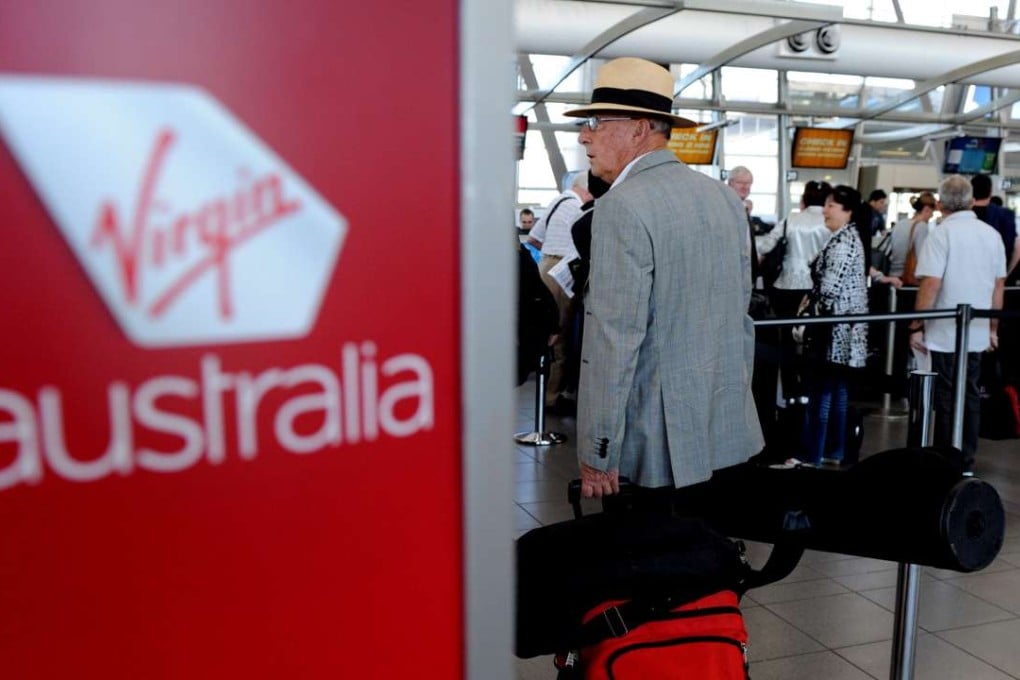Finally, a deal that takes flight; HNA agreement for up to 20pc stake in Virgin Australia matches growth plan, analyst says
Deal seen as strategic for the acquisitive Chinese conglomerate

A newly forged alliance between HNA Group and Virgin Australia through a new share issue worth A$159 million (HK$894 million) may pave the way for more deals to come from the mainland’s most acquisitive conglomerate.
Virgin Australia on Tuesday morning announced the equity investment by and partnership with the Chinese company holding a vast aviation portfolio including Hainan Airlines and Hong Kong Airlines. The deal, which will make HNA an initial 13 per cent and up to 19.9 per cent stakeholder in Australia’s second-largest airline, comes after US$22 billion worth of deals from HNA since July, according to Bloomberg data.
HNA’s investment in Virgin Australia seems logical, according to analysts who questioned recent outlays such as its US$6 billion takeover of California-based IT firm Ingram Micro in February.
The Virgin investment expands HNA’s global footprint and is seen as a way to tap China’s lucrative outbound travel market.
“Virgin Australia is HNA’s most important acquisition to date,” said Will Horton, a Hong Kong-based analyst with the Centre for Aviation.
“It’s not the most expensive investment, but it is in one of the most relevant markets for China and the most relevant airline investment yet for HNA. The theoretical opportunity is for Virgin to fly routes HNA group airlines cannot, this includes points in Australia to Hong Kong, Beijing and Shanghai,” Horton said.
The deal that will entail code-sharing and other cooperations between Virgin Australia and HNA Group’s airlines give both parties greater access to the aviation market in China and Australia. It also gives HNA an advantage over other Chinese airlines to capitalise on commuter flights within Australia by Chinese tourists when visiting the sparsely-populated country.